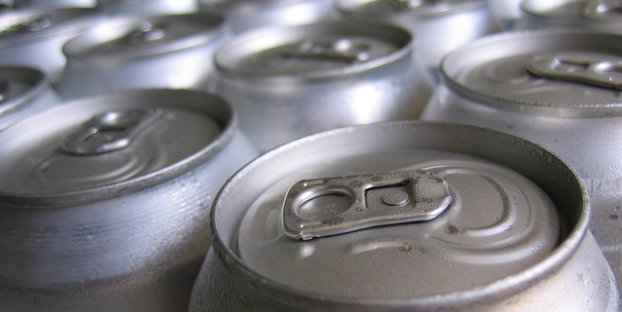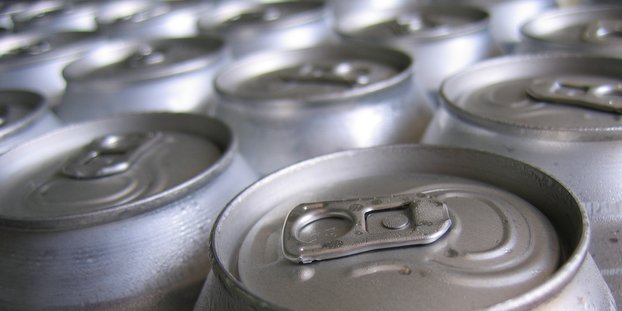
Pretty much everything in a brewery that isn’t an ingredient or a stool made of reclaimed wood is made of metal. So, when the former host of the Apprentice makes it official and imposes tariffs on imported steel and aluminum, it got us all asking questions about the downstream impact on craft breweries. Let’s find some unsatisfying answers.
Will these tariffs at least be helpful for the country?
It is pretty much impossible to find any economic forecast on the internet that sees a positive outcome of this decision for any sector, really. This Business Insider survey of 43 economists sums up the general sentiment: 93 percent disagreed or strongly disagreed with the idea that President Donald Trump’s new tariffs on steel and aluminum will benefit Americans. The remaining 7 percent did not respond to the survey.
Awesome. So, how will these tariffs work?
Effective immediately, imported steel will have a 25 percent tariff and imported aluminum will be hit with a 10 percent tariff. A sliver of good news is that Canada and Mexico are exempt “at least this time.” But Trump did leave open the possibility to reverse that decision if those countries don’t renegotiate the North American Free Trade Agreement in a way that pleases him. He might also settle for having his belly rubbed.
So, what is the economic impact?
The Tax Foundation breaks it down like this:
In 2017, U.S. firms purchased more than $16.8 billion worth of aluminum from foreign suppliers, nearly 90 percent of which was imported from the top 15 countries. A 10 percent tariff would raise the cost of imported aluminum by nearly $1.7 billion if imports remained at 2017 levels.
For steel, the total tax on just these 15 countries would top $6 billion if the 25 percent tariff were levied on 2017 import values.
But the exemptions for Mexico and Canada certainly ease the pain. Canada is the top exporter of aluminum and steel, shipping about two-thirds of the aluminum supply. Mexico is ranks third in steel and 12th in aluminum.
That’s too many numbers. Can I read some quotes now?
Yes.
The aluminum tariff has made the biggest splash in brewer circles, especially as it coincides with the rise in the popularity of canned packaging. The architects of the tariff try to poo-poo the impact, noting that it is a just a 1 cent increase per can. Oh, is that all? Well golly. What’s the big deal? Unfortunately, there is more math involved than that. This fact sheet from the Brewers Association explains it like this:
“Even a 1¢ increase per can — as a result of a tariff — will cost the can industry $960 million, which could lead to lost U.S. jobs and increased costs to consumers.”
Noted craft beer canner Oskar Blues has been out in front of this issue, saying it could cost them $400,000 per year. Oskar Blues cans 65 to 70 percent of the 200,000 barrels of beer it makes every year.
“It certainly puts a strain on the business,” says Chad Melis, marketing director at Oskar Blues, a Colorado-based brewery with operations in North Carolina and Texas. “It will affect our ability to grow and create new jobs and invest in our communities.”
But you don’t have to be an Oskar Blues to get hit seriously hard. With about 30 percent of craft beer now coming in cans, and with small brewers being the fastest growing can adopters, there could be serious ripple effects when can suppliers add up all of those one cents.
“I’d say about 50 to 55 percent of our total production goes out the door in aluminum cans, so aluminum is a major component to our business,” said Brad Stillmank, owner of Stillmank Brewery in Green Bay.
Birdsong Brewery in North Carolina spent $160,000 on aluminum last year. A 10 percent increase would be a previously unbudgeted $16,000.
“Brewers are very concerned,” said Laura Long, a lobbyist with Weist Capitol, whose client is the Colorado Brewers Guild. “A 10 percent tariff is a meaningful addition to the cost of doing business to brewers. Individual brewers and how they react to it will vary, whether they’re able to absorb that cost in their own margin or pass it on to customers. It’s not trivial.”
But the 25 percent steel tariff shouldn’t be overlooked. Kegs, new vessels for adding capacity and expanding, and so on. Sheesh. BA President Bob Pease has been telling all news outlets that will listen that the trade group is equally concerned about it as they are the aluminum tariff.
“We have aluminum cans, aluminum kegs and fermentation tanks that are essential to our business,” said St. Arnold spokesperson Priscilla Walker in this story out of Houston. “If we want to buy more tanks or get more kegs and the price of that goes up, it could hinder our room for expansion.”
I’m sure you don’t need us to explain how narrow your margin is for profit and loss.
Well, now what? Do you absorb these costs or pass them along to the consumer? And how does that affect your appeal in this now super competitive 6,000+ brewery market place?
Sorry, the internet doesn’t have an answer for you there. Good luck out there.





Snyder Be says
Ahhh yeah, pretty sure tax per barrel was just cut in half in January.
Bob Bero says
Did you factor in the affects of the tax cuts into the equation? https://www.npr.org/2017/12/01/567446997/tax-bill-would-give-small-brewers-a-big-break
Raúl Daza says
Mexico and Canada will take down such tariffs using NAFTA provisions.
Bill Ainsworth says
What a bogus article. A 10% tariff on aluminum does not equate to a 10% increase on the cost of aluminum cans. This is a tariff on foreign goods . A very large number of beverage cans are made in the USA. A huge amount of that aluminum is from recycled US aluminum. The likelihood of a price increase is very unlikely.
William Lane says
If I’m a supplier of US-sourced aluminum and I’m seeing price increases in the market due to these tariffs, you bet your behind I’m raising my price too. You’d be silly not to.
Raúl Daza says
Recycling is never 100%.
Bill Ainsworth says
With respect to aluminum cans only. This seems to be a very stable self sustaining market in the US. Prices are not likely to rise.
http://www.aluminum.org/sustainability/aluminum-recycling